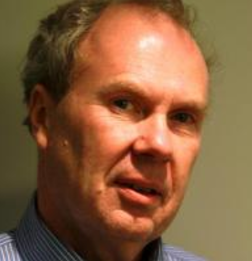China-US Competition: Measuring Global Influence

Speaker(s): Moyer, J. (University of Denver); Meisel, C. (University of Denver); Burrows, M. (Atlantic Council)
Date: 3 August 2021
Speaker Session Summary
SMA hosted a speaker session with Dr. Jonathan Moyer (University of Denver), Mr. Collin Meisel (University of Denver), and Mr. Mathew Burrows (Atlantic Council) as part of its SMA General Speaker Series.
Measuring a country’s power has traditionally been done by primarily comparing the military strength of countries on a country level basis. However, Dr. Moyer stated that measuring a country’s true power is more nuanced and should include factors such as its ability to conduct trade and provide foreign aid. Also, the measure of a country’s power relative to another’s should be a bilateral measurement, which relies on quantifiable data. Other important factors include a country’s political will to influence others and the balance in the relationship between countries—this is a dyadic relationship which is affected by a country’s bandwidth for communication and willingness to interact.
More than two million observations of bilateral relationships between states were examined to build the Formal Bilateral Influence Capacity (FBIC) Index. Mr. Meisel stated the FBIC Index shows that China has been successfully increasing its influence in Southeast Asia. The USG used to be the preeminent political influencer in this region, however, China is now competing for political influence in many states. Mr. Burrows argued that the USG can effectively compete with China’s growing political power in the region through trade agreements and relying on allies who have strong political power on their own. However, decision makers should use quantifiable data as a primary decision-making tool when deciding what actions should be taken.
Note: We are aware that many government IT providers have blocked access to YouTube from government machines during the pandemic in response to bandwidth limitations. We recommend viewing the recording on YouTube from a non-government computer or listening to the audio file (below), if you are in this position.
Mr. Mathew Burrows (Atlantic Council)

Mathew Burrows serves as director of the Atlantic Council's Strategic Foresight Initiative. His recent book is titled The Future Declassified: Megatrends that Will Undo the World Unless WeTake Action (Palgrave/Macmillan,2014).
In August 2013, Mr. Burrows retired from a 28-year career in the CIA andState Department, the last ten being spent at the NationalIntelligence Council (NIC). In 2007 he was appointed director of theanalysis and production staff and was responsible for managing astaff of senior analysts and production technicians who guide andshepherd all NIC products from inception to dissemination. He was theprincipal drafter for the NIC publication “Global Trends 2030:Alternative Worlds,” which received widespread praise in theinternational media. He also drafted two earlier editions of thereport.
Burrows joined the CIA in 1986, serving as analyst for the Directorate ofIntelligence and covering Western Europe, including the development of European institutions such as the European Union. From 1998 to1999 he was the first holder of the Intelligence Community Fellowship and served at the Council on Foreign Relations in New York. Otherprevious positions included assignments as special assistant to U.S. Ambassador to the United Nations Richard Holbrooke (1999-2001) and deputy national security advisor to U.S. Treasury Secretary Paul O'Neill (2001-2).
Burrows graduated from Wesleyan University in 1976 and received a Ph.D. inEuropean history from Cambridge University, England in 1983.
Mr. Collin Meisel (University of Denver)

Education:
A.A.S.in Criminal Justice from the Community College of the Air Force,2014
B.A.in Political Science from American Military University, 2015
M.P.P.in Public Policy from Georgetown University, 2018
Collin J. Meisel came to the Pardee Center’s Diplometrics Project in the fall of 2018 and transitioned to the role of Diplometrics Program Lead in spring of 2020. Prior to Pardee, Collin researched issues related to chemical, biological, radiological, and nuclear terrorism at the National Consortium for the Study of Terrorism and Responses to Terrorism's (START) Unconventional Weapons and Technology division. Before START, Collin served for 8 years as a Security Forces member in the U.S. Air Force, which included leading and advising security teams for Special Air Missions transporting the Vice President of the United
